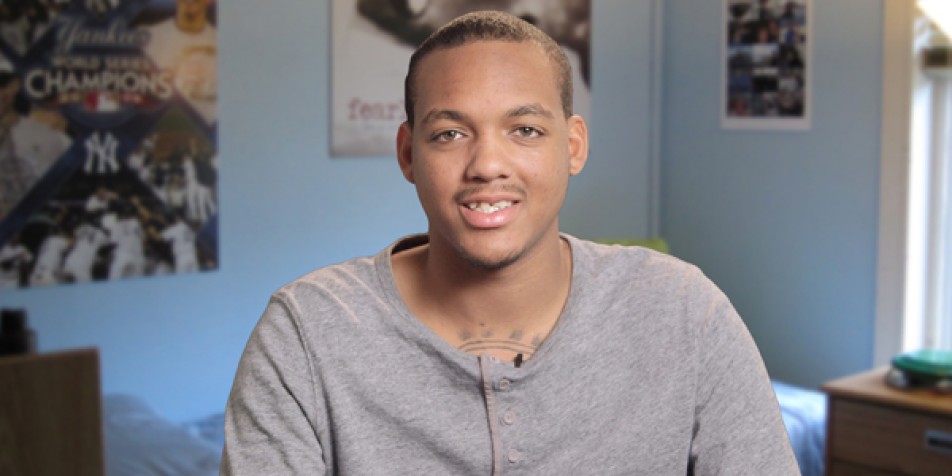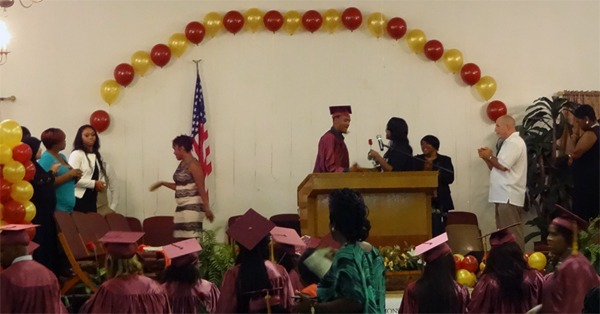I was once just another youth in foster care

Too often, youth in the child welfare or justice systems are excluded from discussions about how to reform these systems, yet they have personal experiences that would inform these discussions. To amplify their voices, Juvenile Law Center developed two Philadelphia-based youth engagement programs, Juveniles for Justice and Youth Fostering Change, which create opportunities for these youth to advocate directly for systemic reforms.
I was once just a youth in foster care who also had a run in with the juvenile justice system. During my time in both systems, I felt like I never had a voice because I never was given a chance to give my opinion or say what I wanted or needed. I felt helpless. Then, I heard about Juvenile Law Center and its youth advocate programs. I ended up being a youth advocate in Youth Fostering Change for two years and an advocate in Juveniles for Justice for one year. Suddenly, as a youth advocate I was able to do everything I couldn’t do before, and not only did I have the liberty to advocate and voice things for myself, I was able to help create a voice for hundreds and hundreds of youth like me.
|
Everything I’ve learned as a youth advocate, from advocacy skills and the way that I interact with people to my ability to help and understand people, paid off. |
But, because I was an older youth in foster care, my stability was shaky as I began aging out of the system and having nowhere to go. I enrolled in a medical assistant school the same year I became an alumni of Juvenile Law Center’s youth advocate programs, and that’s also the same year I became homeless. But, I still believed that, down the line, there was hope.
Nine months later, in February 2013, I was working an externship. During that time, I was arrested for a fight, incarcerated for a whole month, and sent to court three times. When I came home from jail in April, I was still homeless and my graduation from the medical assistant program was pending. I was able to graduate that June; none of my family was present, but Juvenile Law Center was there.
I wasn’t able to find a job right after graduation, but I’d heard about an employment opportunity called PowerCorps PHL from Juvenile Law Center staff. PowerCorps employs young people ages 18-26 to help them better themselves and help beautify the city under the Green City Clean Waters Act. The six-month program also offers fellowships and the chance to be an assistant crew leader, if your crew leader finds you fit and able to lead. Eager to work, I jumped at the job opportunity, and that same week, I found another job opportunity working at Eastern State Penitentiary once a week. By August, I was looking forward to working two jobs in September: PowerCorps PHL and Eastern State Penitentiary.
I’ve been working at Powercorps since September, 2014, and in this month I’m returning to the program working full-time as an assistant crew leader. Everything I’ve learned as a youth advocate, from advocacy skills and the way that I interact with people to my ability to help and understand people, paid off. I will be working more hours with PowerCorps now, and being in that leadership position is going to help pursue my long term goal: starting my own nonprofit advocacy organization. I want to help people just like Juvenile Law Center helped me advocate for myself.
Update: After Bruce wrote this post, he has obtained supportive housing through Francis Home of Peace and says that he couldn’t be happier to have his own apartment. Congratulations, Bruce!
 |
|
Above: Bruce walks across the stage at his graduation ceremony. |